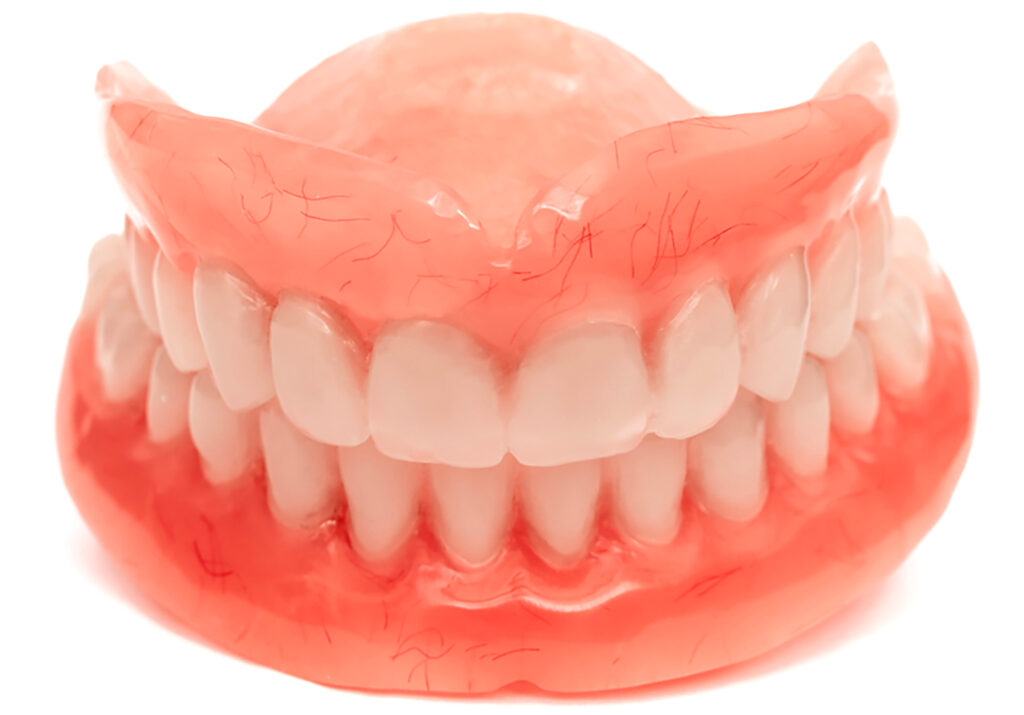Dentures are incredibly beneficial to those who need a solution after a situation such as extracting teeth or losing them in some other way. Not many things are as much of a deterrent to a visit to the denture clinic as concerns about pricing.
It’s always a good idea to discuss the cost implications with your denturist, so you know what you’re getting yourself into. Denture services will also often have a payment plan option, and when you consider that your health insurance company can pitch in, suddenly, things can almost immediately seem more affordable.
Your consultation will help you to understand what the specific cost of your dentures can be, but you could be looking at anywhere between $1,300 to $2,000, depending on your specific needs.
What Factors Affect Cost When Purchasing Dentures?
While dentures can seem like an expensive undertaking, it helps to understand the factors that lead to the pricing that you may face. In fact, you and another patient could find yourselves at the same place getting dentures taken care of and pay significantly different prices because of individual differences in your situations.

The most important elements of the cost calculation include the extent of replacement, the need for standard or precision dentures, and the materials and extras that need to be accounted for.
The extent of the Replacement
Some people will need all their teeth replaced, others will need several, while others may only be concerned with a single tooth.
Positioning is also important here. You’ll typically find that lower dentures are a bit more expensive than their upper counterparts since the technique used to make them calls for slightly more complexity.
Partial dentures also bear a bit of a price premium since there are existing teeth and the fact that a metal cast frame is going to be needed to clasp onto them, so the denture stays in your mouth. For reference, complete dentures rely on suction to do this.
There is also what’s known as a cast partial, which uses wire clasps instead of the metal frame, and this would also factor into how much you or your insurance provider would be required to pay.
Precision Vs. Standard Dentures
Standard dentures are the regular type using average measurements that are meant to achieve alignment based on where your jaw and gums are. It’s not that this type bears no accuracy whatsoever, but the effort that goes into it is much different from its precision counterpart.

Precision dentures are going to be on the more accurate side of the spectrum, and this comes from the extra steps involved and the additional appointments that will be needed during the process.
Usually, the extra element means recording more jaw movements to account for the more custom fit needed so it interacts with your existing teeth, if applicable, and gum tissue as intended.
Materials and Extras
Material is one of the more obvious cost implications to think about. Denturists can use a series of different materials to achieve different quality outcomes. To you, this means the level of resistance the wearing down, the way the teeth look, how much light is reflected, the extent to which natural teeth are mimicked, etc.
As you can imagine, higher tooth quality means a more natural look and a longer useful life, but there’s going to be a higher cost with it all. There could also be extras in the form of accessories that will also contribute to a higher cost.
Bear in mind that there are also costs not necessarily related to the dentures themselves, but which may still be necessary. For example, you may need to have natural teeth extracted before the dentures are inserted, which comes at a cost.
Types of Dentures
Immediate Dentures (Right After Dental Surgery)
There could be different reasons why you’d have teeth removed, including gum disease or decay. If dentures are on the cards, you will likely be receiving permanent dentures at some point. However, you may find that your denturist suggests getting temporary or immediate dentures in the meantime.
As the name implies, you would wear these as soon as your tooth removal is done, meaning you won’t have to be without teeth as the healing happens. Permanent dentures will take a little longer to be ready, so it helps to have this intermediary.
Full Dentures (Permanent)
To facilitate speaking and eating in the long term, permanent dentures will likely be used. The process takes several weeks and requires several dental appointments for impressions, modeling, and casting.

You will wear these longer initially to account for sore spots and to adjust to them. Once the adjustment is complete, you can remove them at night, allowing the tongue and saliva to naturally stimulate your gum tissue.
Insurance Coverage and Financing Options
Paying for dentures is not always possible out of pocket, and you may need financial aid. Depending on the specifics of your private insurance policy, you could get some level of coverage there.
This is not always possible, however, but that doesn’t change the fact that assistance is needed. At Shreve Dental Clinic, we have a partnership with Dentalcard, which is meant to assist our patients in acquiring the funding needed to have their dentures made.
Ask about how it works!
Important Questions to Ask Your Denturist
You should always ask questions to clear up your concerns, so you understand the process and are comfortable. Some of the things you want to find out are:
- How long does it take to get dentures made?
- Will I get an idea of the cost before I commit?
- How many appointments will I need?
- How long should I wear my dentures?
- How long are my dentures going to last?
- If my dentures need adjusting, what’s the process to get that done?
Contact Shreve Denture Clinic Today!
Dentures change your life from both an aesthetic and functional standpoint. Understandably, you may have concerns about the cost, which were hopefully cleared up above.

Shreve Denture Clinic has a history of restoring smiles and function through dentures, and we can do the same for you. Call 519-322-5900 to schedule a free consultation today.








